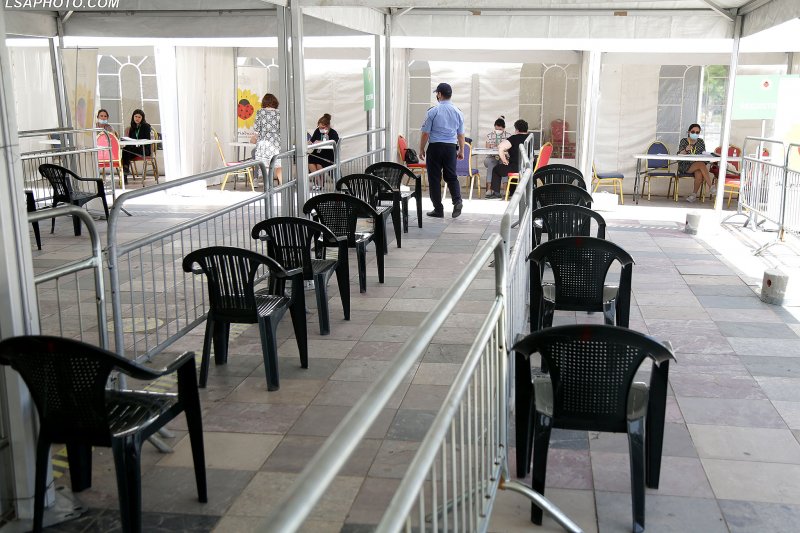Delta Variant, Albania Is One out Four Least Vaccinated Countries in Europe
Fear of the spread of the Delta virus variant has prompted all states to accelerate vaccination rates, as the only way to pass a new wave as easily as possible.
According to Worldindata data, Europe on average has vaccinated at least partially 44.4% of the population (32.2% completely, while 12.2% have received at least one dose.)
The record in Europe is held by the United Kingdom, with partial vaccination of 68% of the population, of which 51.4% have been fully vaccinated while another 16.3% have received a dose. The British government has announced that the vaccination has had a significant impact on reducing the number of hospitalized, infected with the Delta variant.
According to an analysis by the Public Health Unit of England, the Pfizer-BioNTech vaccine is 96% effective against 2 doses of hospitalization, while the Oxford-AstraZeneca vaccine is 92% effective against 2 doses. These are comparable to the effectiveness of the Alpha variant of the inpatient vaccine. More data are needed to determine the level of protection against mortality from the Delta variant. However, as with other variants, this is expected to be high, the report notes.
In second place in Europe in Belgium, with 66% of the population partially vaccinated (43% with both doses). It is followed by the Netherlands with 65% (39% fully vaccinated).
Austria is the country with the largest percentage of the population in Europe, having been fully vaccinated, with about 54% of the total. Italy has vaccinated at least 59% of the population (39% have completed the process). Greece has given at least one dose to 50.5% of the population. Nearly 42% have taken both doses.
Vaccination in the region, Albania lags behind
Serbia continues to be the country with the highest level of vaccination in the region, although rates have dropped significantly since February and March when it ranked second in Europe after the United Kingdom. However, it continues to have a high weight for the fully vaccinated population, with 38% of the total (40% partially).
Montenegro, which started vaccination later than Albania has moved faster, fully vaccinating 23% of the population, while another 2.3% have received a dose (25.2% total). Albania has slowed the pace of vaccination. As of June 12, only 20.5% of the population was partially vaccinated. 15.2% of the population have received both doses. 5.3% received only one.
North Macedonia has also partially vaccinated about 20% of the population (about 12% completely). Then in Europe remained Bulgaria (14.2% vaccinated at least partially), Kosovo (9.4%), Bosnia and Herzegovina (9.3%).
How effective are the vaccines against the Delta variant
At present, there is not much data on the efficacy of vaccines against the Delta variant. Early studies show that it is effective. The Financial Times writes that the high dose efficacy in the UK, where the Delta variant is dominant and more than half of the population is fully vaccinated, is reflected in the current mortality rate for Covid-19 patients, which stands at 0.085 percent is 20 times lower than its peak, according to Meaghan Kall, an epidemiologist at the UK Institute of Public Health.
Canadian scientists, using a combination of methods, estimated that the Pfizer vaccine was 87 percent effective in preventing infection with the Delta variant. That was "comparable," the researchers said, with 89 percent of the protection provided by the Alpha variant, first identified in Britain.
For other vaccines, however, real-world efficacy data do not yet exist, forcing health officials to rely on laboratory tests to evaluate effectiveness against Delta. In such studies, scientists use the blood of vaccinated individuals to evaluate the effectiveness of a dose against a laboratory variant.
Russia's Sputnik V manufacturers have said it is "more effective against the Delta variant of the coronavirus." than any other vaccine that has published results so far, â€but did not provide evidence to support the claim".
Some Chinese scientists have said that some Chinese vaccines have been found to be less effective against Delta than previous variants, but no details of the studies have been provided. Sinovac spokesman Liu Peicheng told Reuters that preliminary results based on blood samples from those vaccinated with the vaccine showed a threefold reduction in the neutralizing effect on Delta.
Peter English, a public health expert, warned that while data on efficacy against hospitalization were generally positive, the ability of vaccines to prevent Delta transmission was much less clear. "Delta is much more contagious, which means that the virus finds people who are not enough".
(Source: Monitor)













